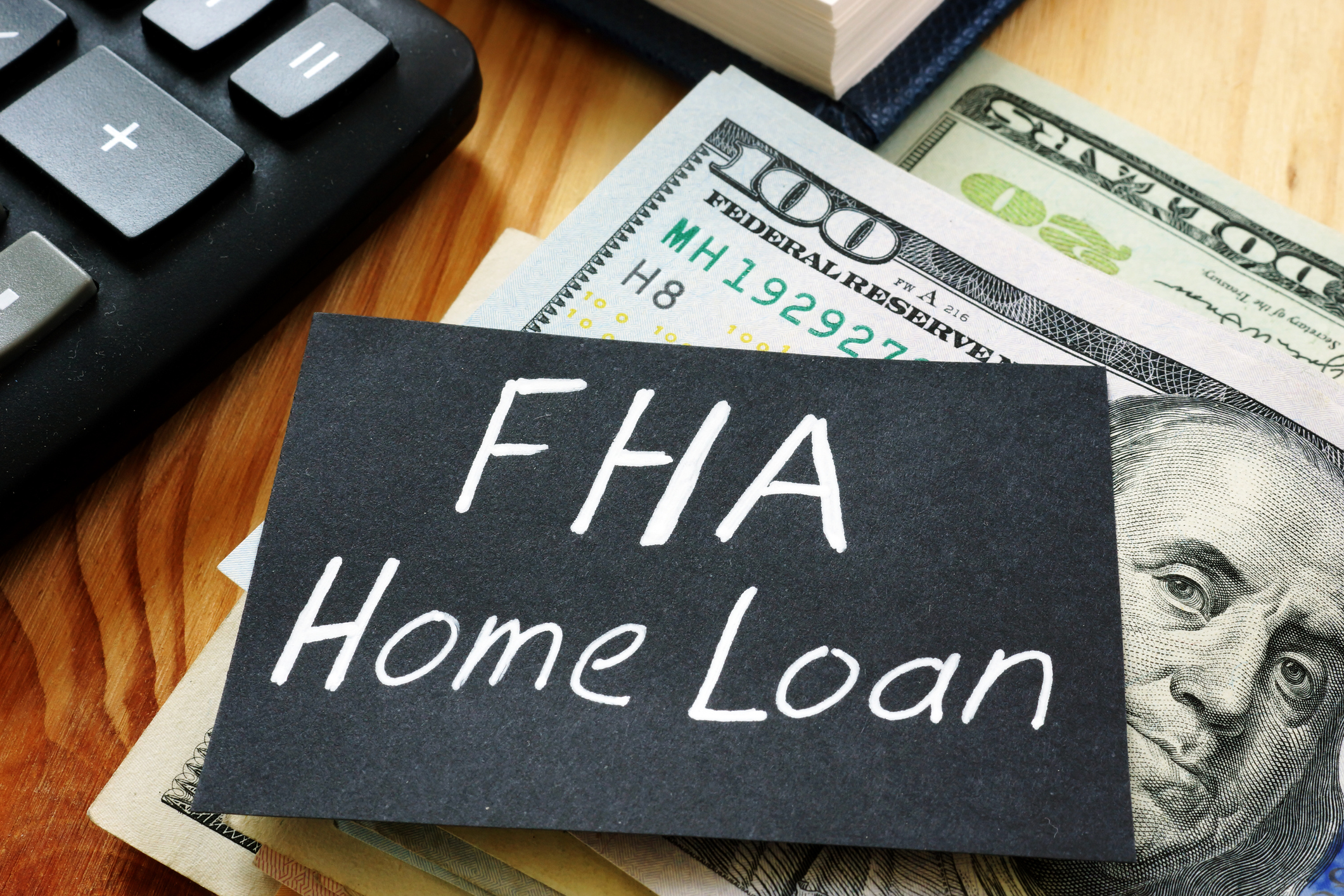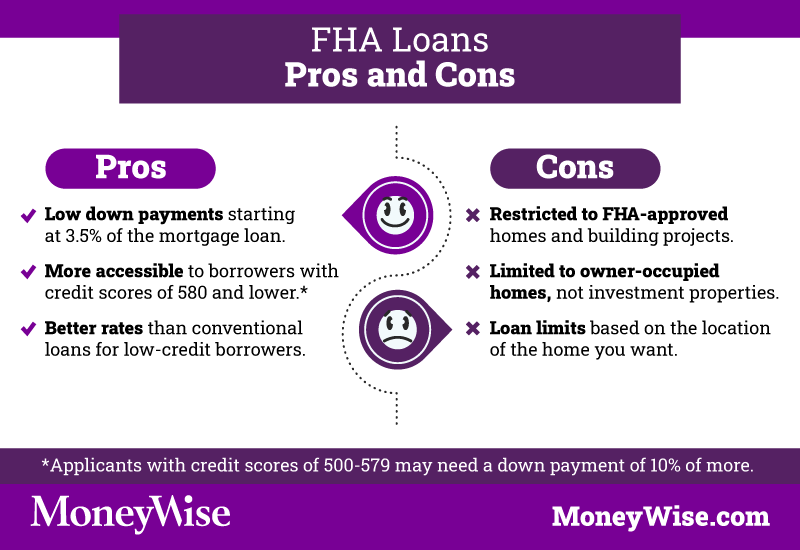FHA Home Loans: Easy Steps to Safeguard Your Dream Home
FHA Home Loans: Easy Steps to Safeguard Your Dream Home
Blog Article
Home Mortgage Debunked: A Thorough Evaluation of Lending Programs Tailored to Fit Your Financial Scenario and Objectives
Navigating the landscape of mortgage usually provides a difficult challenge, compounded by a myriad of programs made to meet diverse economic requirements. Comprehending the differences in between fixed-rate and adjustable-rate mortgages, as well as government-backed choices like FHA and VA car loans, is essential for making informed choices. Each program supplies special advantages customized to certain scenarios, yet the complexity of qualification requirements and rates of interest can obscure quality. As we discover these details, one should take into consideration exactly how to line up these options with individual economic objectives to unlock the most helpful pathway to homeownership.
Understanding Home Lending Basics
Although numerous individuals aim to homeownership, understanding the fundamentals of mortgage is essential to making informed financial decisions. A home loan, also referred to as a mortgage, is a monetary product that permits people to obtain money to purchase property. The consumer is called for to settle the loan quantity, in addition to rate of interest, over a set duration, generally ranging from 15 to 30 years.
Secret parts of mortgage include the principal, which is the amount obtained, and the passion rate, which figures out the price of borrowing. Lenders examine various aspects, such as credit score, debt-to-income, and revenue ratio, to identify eligibility and lending terms. Furthermore, debtors need to recognize the importance of deposits, which can influence financing approval and affect monthly payments.
Recognizing finance amortization is additionally important; this refers to the steady reduction of the lending equilibrium in time via regular settlements. By understanding these fundamental ideas, potential home owners can browse the mortgage landscape better, inevitably leading to better economic outcomes and a more effective home-buying experience.
Kinds Of Home Loan
Mortgage lendings can largely be categorized right into adjustable-rate and fixed-rate mortgages (ARMs) Fixed-rate mortgages offer a regular passion price and month-to-month settlement over the finance's term, offering stability, commonly for 15 to 30 years.
Conversely, ARMs have rates of interest that vary based upon market conditions, normally beginning lower than fixed-rate options. Nevertheless, these rates can adjust regularly, possibly boosting month-to-month settlements over time. Borrowers that prepare for refinancing or moving before substantial price changes may find ARMs beneficial.
In addition, government-backed fundings, such as FHA, VA, and USDA lendings, cater to certain demographics and use different benefits like reduced deposits and adaptable credit demands. Conventional lendings, not guaranteed by the government, frequently require higher credit history however can provide affordable prices for economically steady consumers - FHA home loans. Recognizing these funding types enables possible house owners to pick the home loan that aligns best with their economic scenario and long-lasting goals
Key Eligibility Requirements
Browsing the eligibility needs for a home loan is an important step in the home-buying process. Comprehending these demands can substantially simplify your application and boost your opportunities of approval.
The key variables influencing eligibility include credit report, income stability, debt-to-income (DTI) proportion, work background, and down settlement amount. Most lending institutions require a minimal credit report rating of 620 for traditional loans, while government-backed loans may have much more tolerant requirements. A secure income, showed through regular employment or self-employment documents, is necessary for lending institutions to analyze your capacity to pay off the lending.
The DTI proportion, which compares your regular monthly financial obligation payments to your gross monthly earnings, typically should not exceed 43%, though some loan providers may permit greater proportions in specific conditions. Furthermore, the size of your down repayment can influence eligibility; while a bigger down payment might boost your chances, certain programs supply choices their explanation for marginal deposits.
Finally, lending institutions will certainly examine your total financial profile, including available assets and responsibilities, to guarantee you are economically efficient in keeping homeownership. Acquainting yourself with these essential eligibility needs will encourage you in the home loan application journey.

Rate Of Interest Clarified
Understanding the ins and outs of rates of interest is essential to making informed choices in the home mortgage process. Rates of interest represent the expense of obtaining money and are shared as a portion of the finance amount. They can considerably influence your monthly home mortgage payments and the total price of your mortgage.
Passion rates can be categorized into taken care of and adjustable rates. Fixed rates continue to be consistent throughout the financing term, offering predictability in regular monthly repayments. On the other hand, flexible rates fluctuate based on market conditions, which can cause lower initial settlements yet might increase in time.
Several aspects influence rates of interest, consisting of the debtor's credit history, financing term, and prevailing financial conditions. Lenders evaluate these variables to determine the threat connected with lending to a certain borrower. Generally, a greater credit rating can lead to lower rates of interest, while longer car loan terms might cause higher rates.
Additionally, broader economic signs, such as inflation and monetary policy, play an see this site important duty fit rate of interest. Recognizing these components enables customers to better navigate the borrowing landscape and choose alternatives that line up with their financial objectives.
Choosing the Right Lending Program
Picking the proper lending program is important for customers intending to optimize their funding alternatives. With numerous lending types readily available, including fixed-rate, adjustable-rate, FHA, and VA car loans, understanding the nuances of each can considerably affect lasting monetary health and wellness.
Borrowers ought to initially examine their monetary scenario, consisting of credit history, revenue stability, and debt-to-income ratios (FHA home loans). A fixed-rate mortgage provides my link predictability with regular month-to-month settlements, perfect for those preparing to stay in their homes long-lasting. On the other hand, variable-rate mortgages may offer reduced preliminary prices, attracting buyers who prepare for relocating within a couple of years
Furthermore, government-backed loans such as FHA and VA options can be beneficial for novice property buyers or experts, as they frequently require lower deposits and have a lot more forgiving credit score demands.

Verdict
In conclusion, navigating the complexities of home loans needs a detailed understanding of different mortgage programs and their unique attributes. By evaluating private financial scenarios and goals, possible consumers can make enlightened choices concerning the most ideal finance options.
Fixed-rate home mortgages supply a regular rate of interest price and monthly repayment over the finance's term, supplying security, usually for 15 to 30 years.In addition, government-backed lendings, such as FHA, VA, and USDA car loans, provide to particular demographics and supply different benefits like reduced down settlements and adaptable credit history requirements. Most lenders require a minimum debt rating of 620 for traditional loans, while government-backed car loans may have extra forgiving standards. Repaired prices stay constant throughout the loan term, offering predictability in month-to-month payments. Typically, a higher credit history rating can lead to lower interest prices, while longer financing terms may result in higher rates.
Report this page